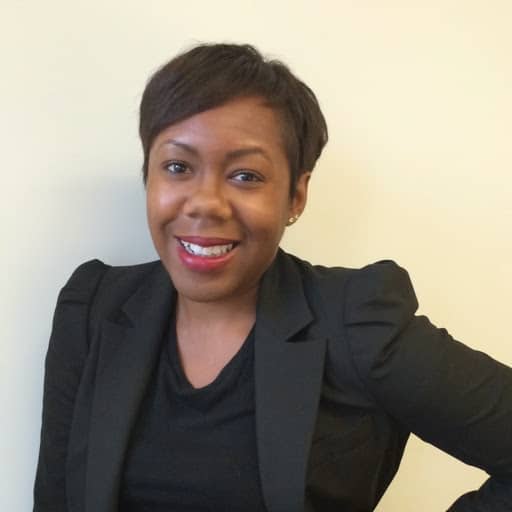Disappointment is a part of life. This may be a biased comment, but disappointment feels more acute for people like entrepreneurs, who risk everything to make their dreams a reality.
Entrepreneurs quit their jobs, sacrifice relationships with friends and family, cash out their 401(k)s and run head-first into the unknown — that place in the universe filled with possibilities, tremendous joy and fulfillment. But also with lots of disappointment.
I’d like to share how I overcame the disappointment of not making it to the final round of auditions to get my company, WeMontage, on the incredibly popular TV show Shark Tank.
Why I Wanted to Get on Shark Tank
I recently listened to a great audio book by Ben Horowitz called, The Hard Thing About Hard Things. I had one really great takeaway from the book:
When things get hard in your business and you’re not sure if there is anything you can do to make a difference, you ALWAYS have a move.
Let me repeat that. You ALWAYS have a move.
Things have been extremely challenging at WeMontage since we ran out of funding back in the spring. I have a great product with hundreds of happy customers, but the biggest issue for the business is lack of consistent national exposure.
Shark Tank has 20 million viewers. So, while it was a complete long-shot, getting on the show was my move. And doing so obviously would have addressed what I’ve identified as the major issue for the business.
I made it to the next-to-last round of auditions, but did not get the call to go to LA to pitch to the Sharks. Cause for disappointment? Perhaps…
How I Handled the Disappointment of Not Getting on Shark Tank
I initially thought I didn’t make it to the second round of auditions because people in line around me at the audition got their call back and I hadn’t; I was really upset about this because the producer said my pitch was great. I eventually did get the call a few days later and was super-pumped about it.
After I prepared my nine-minute pitch video for the producers and submitted my lengthy application, a funny thing occurred. I made a conscious decision that it didn’t matter what happened next, as I knew I had put forth my absolute best effort. I think that choice was inspired by something Ariana Huffington said in an interview about her new book, Thrive.
Ariana, a super-Type A personality, said she realized she can only control 10 percent of what happens in life, so she does her 10 percent at 100 percent of her ability and trusts the Universe to handle the other 90 percent. So, maybe that’s what I did, too. Or maybe I just released the whole thing because I’ve learned that my greatest disappointments in life have been when I expected a certain outcome and it didn’t come to pass. Or maybe it was some subconscious effort to protect my mental health. I actually think it was a combination of all three of these things.
Surprisingly though, I wasn’t disappointed to learn I didn’t make it to Shark Tank.
Disappointment of Others Who Support You
My wife has been incredibly supportive throughout this entrepreneurial journey. When I didn’t hear back about making it to LA, she was still optimistic it was going to happen. Once the trailers for the new season of Shark Tank started airing, the reality set in that I wasn’t going to be on the show and I could tell she was disappointed. And for the first time in the last three years, she began to question the feasibility of me accomplishing my dream of making WeMontage a household name.
She asked me, “Do you think WeMontage is going to happen.” My answer surprised even me. I didn’t hesitate in my response, “Yes, I do. I don’t know exactly how at this point, but I’m OK with that. I have a few tangible things coming up soon, that should make a huge difference.”
I was grateful she accepted that answer without hesitation. I was even more impressed that I still had the resilience in me to respond so affirmatively and so quickly in that way.
Suggestions for Managing Disappointment
I looked around the Internet to see what others recommend for handling disappointment. I found a few practical, platitude-free suggestions in an article over at PsychCentral.com. Here are six recommendations in the article for how to effectively cope with disappointment.
1. Manage emotion
2. Don’t take it personally
3. Review expectations
4. Take a big picture perspective
5. Try again — or try another tack
I think I’ve used all of these tips during the last three years of chasing my dream. The thing I think I’m best at on this list though is number “6”, which is being resilient.
Resilience Matters
In my experience, the one thing that has consistently kept me moving forward, other than the support of my amazing wife, loving family and friends, is resilience.
There have been plenty of times I’ve wanted to quit, but I haven’t.
I still might quit…
But not today.
How have you dealt with disappointment as it relates to being an entrepreneur? Are there things you can share that might help others? Please do so in the comments.
James Oliver, Jr. is a husband to an amazing wife, Ayana, and co-founder of the world’s cutest twins, Thaddeus and Zoe. James is a tech entrepreneur who successfully raised private investment capital for his startup, WeMontage, the world’s only website that lets you turn your photos into large collages on removable wallpaper. James graduated Phi Beta Kappa from Morehouse Collage and has an MBA from the Kenan-Flagler Business School at UNC-Chapel Hill. Follow @jamesoliverjr on twitter and via treplifedad on Facebook and G+. You can connect with James via his lifestyle blog for parent entrepreneurs:www.treplifedad.com.



